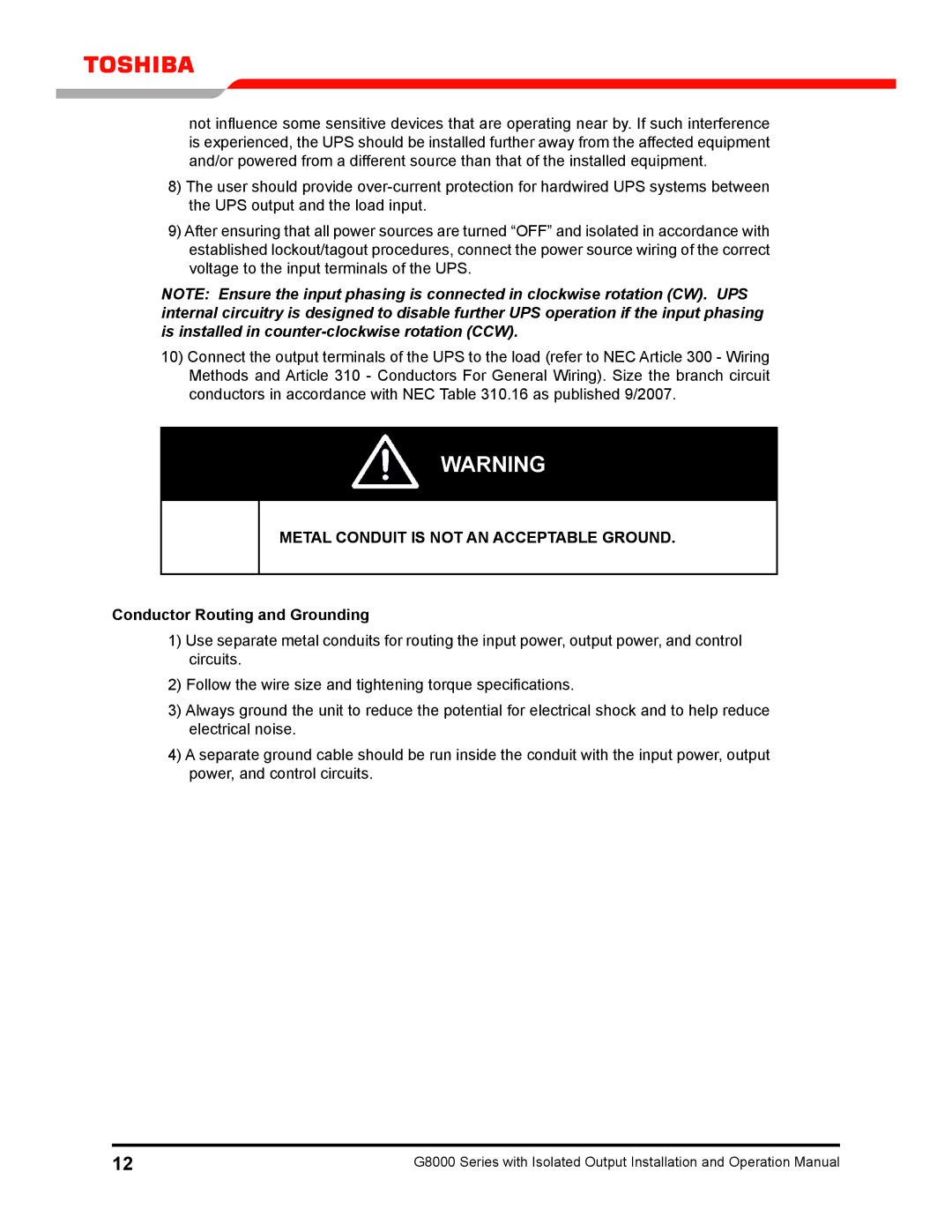
not influence some sensitive devices that are operating near by. If such interference is experienced, the UPS should be installed further away from the affected equipment and/or powered from a different source than that of the installed equipment.
8)The user should provide
9)After ensuring that all power sources are turned “OFF” and isolated in accordance with established lockout/tagout procedures, connect the power source wiring of the correct voltage to the input terminals of the UPS.
NOTE: Ensure the input phasing is connected in clockwise rotation (CW). UPS internal circuitry is designed to disable further UPS operation if the input phasing is installed in
10)Connect the output terminals of the UPS to the load (refer to NEC Article 300 - Wiring Methods and Article 310 - Conductors For General Wiring). Size the branch circuit conductors in accordance with NEC Table 310.16 as published 9/2007.
warning
metal conduit is not an acceptable ground.
Conductor Routing and Grounding
1)Use separate metal conduits for routing the input power, output power, and control circuits.
2)Follow the wire size and tightening torque specifications.
3)Always ground the unit to reduce the potential for electrical shock and to help reduce electrical noise.
4)A separate ground cable should be run inside the conduit with the input power, output power, and control circuits.
12 | G8000 Series with Isolated Output Installation and Operation Manual |
